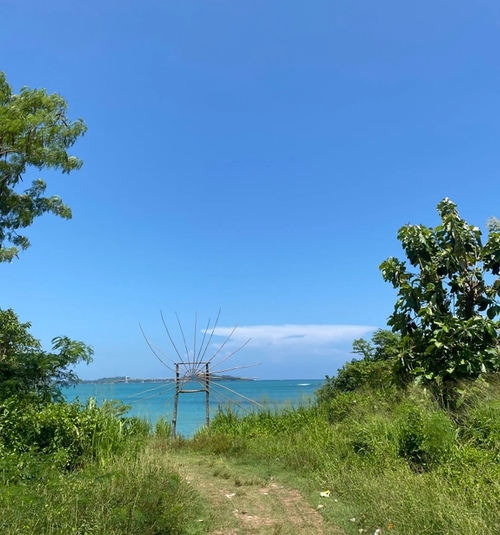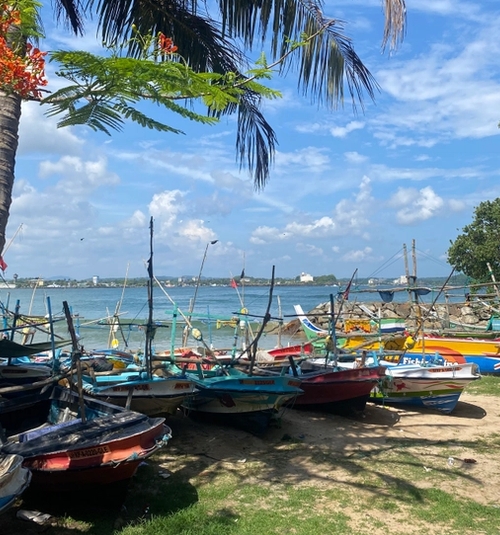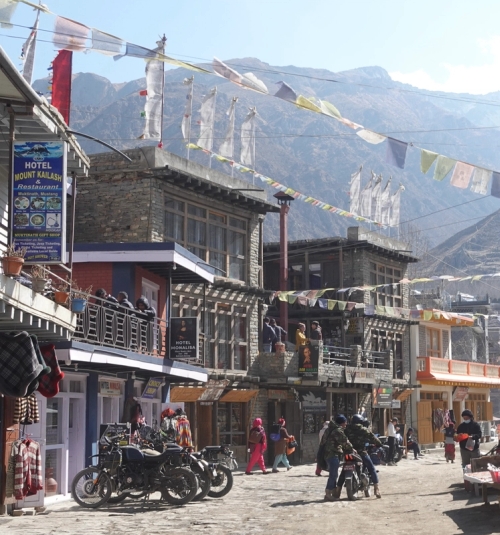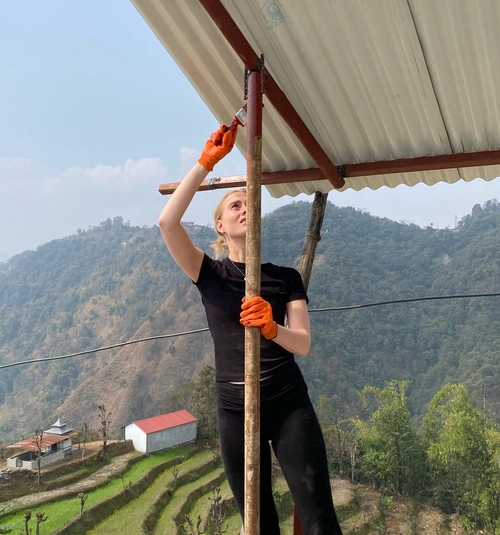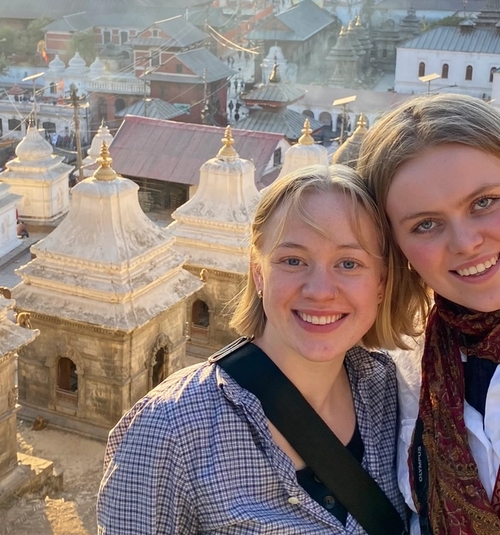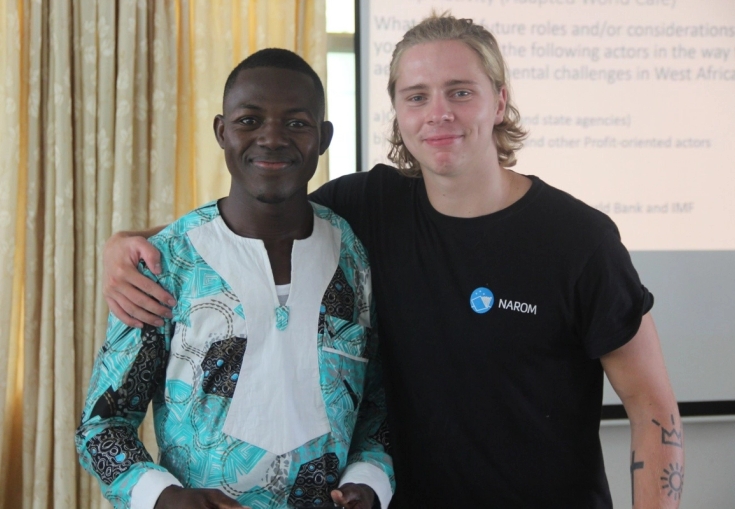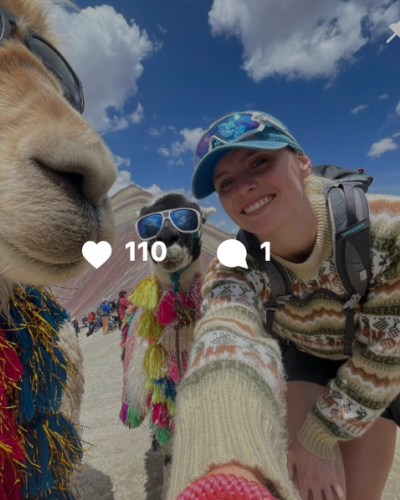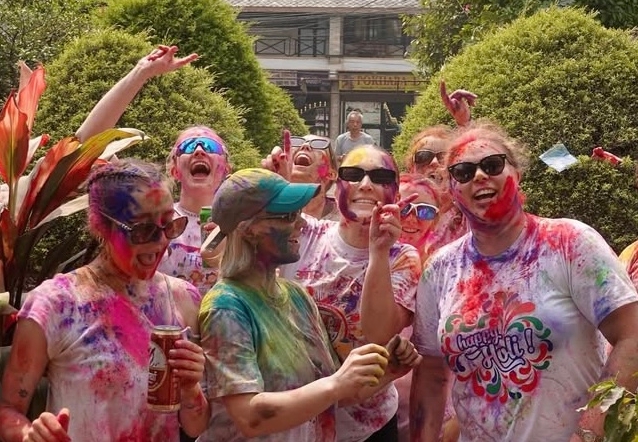
Studying in Nepal: Self-study, lectures, and fieldwork
Before I started my studies in Nepal, like many others, I had many questions about what everyday life would look like. Now, as we approach the end of our stay here in Pokhara, I would like to share a bit about how the studies are structured, and especially how it actually feels to study here!

This text is translated using AI.
View the original article here.Here you will get a general introduction to roughly what you can expect from a semester in Nepal, although there will also be some differences from semester to semester.
Before departing for Nepal, the semester begins with a period of self-study. During this period, one works independently on an assignment, while also having the opportunity to thoroughly familiarize oneself with the curriculum and prepare for the teaching that awaits in Nepal.
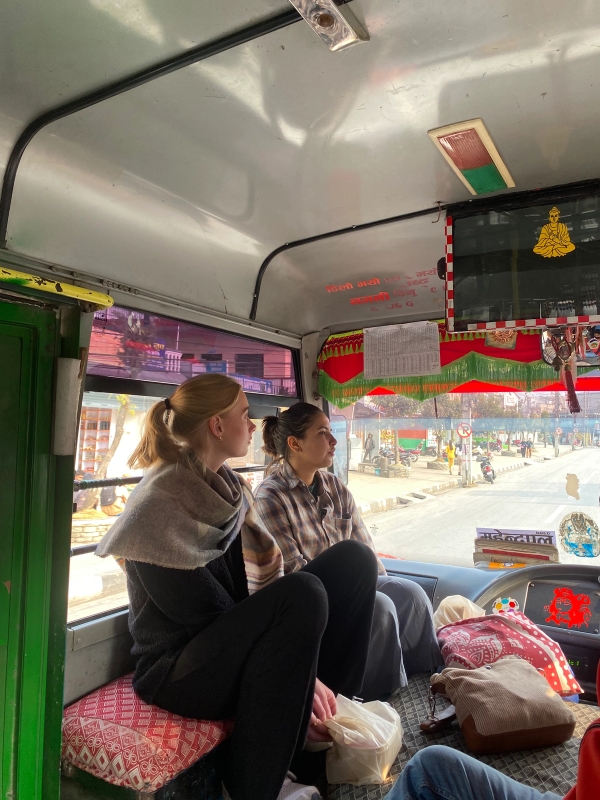
It was a great advantage to be able to prepare well in advance so that I could spend a little less time on the curriculum right at the start, and spend a little more time exploring Pokhara and Nepal.
The seminar leaders and the academic team at Kulturstudier are also available for guidance, so you never feel alone in the process. In other words, it made the transition to the academic routine here much easier.
After the period of self-study, it's time to travel down to Nepal! The teaching here is divided into three main modules, each focusing on different aspects of peace and conflict studies, providing a thorough introduction to the field.
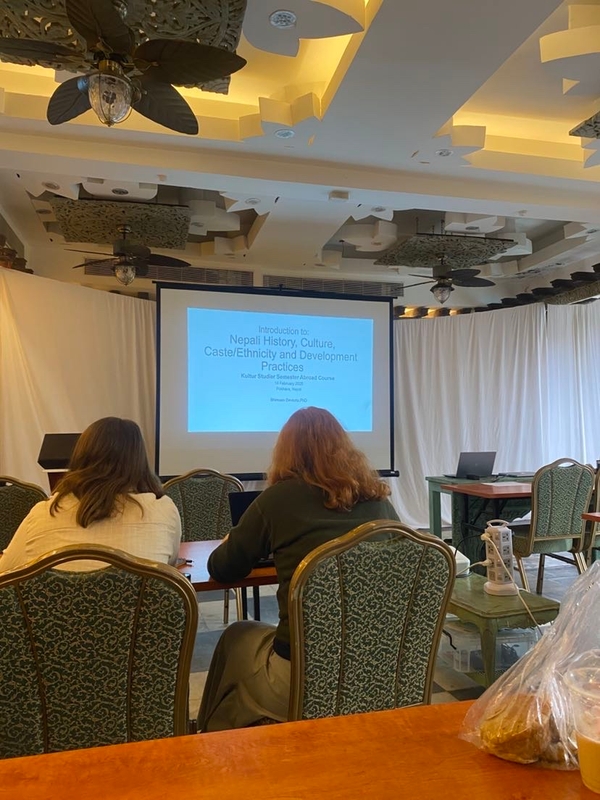
Classroom teaching is very exciting in itself and offers a very stimulating learning environment. We put a little extra focus on peace and conflict in South Asia, and we have been fortunate to have lecturers who work with peace research and practice peacebuilding in South Asia.
This is incredibly exciting because we get to learn from the experts who come from and are educated in the context they study.
In addition, we have some Nepalese students in the class, which has allowed for cultural exchange and many interesting discussions, where one learns a lot about different perspectives on the field, but also makes very good friends.
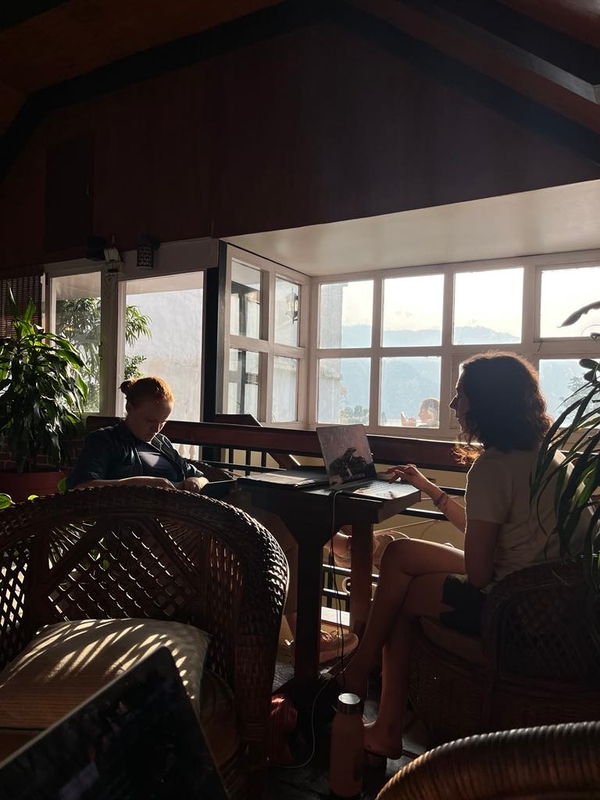
During some periods there are more lectures than others, but generally there are breaks from the lectures with various excursions and fieldwork. Here we have visited several local organizations, important monuments, or other exciting initiatives and activities in the local area.
These trips have been a fantastic way to connect theory with practice, while we have learned a lot about the local community and culture.
Everyday life here is also very flexible. After lectures, which usually end around lunchtime, we therefore have the opportunity to prioritize the rest of the day as we wish, which offers many great opportunities to experience Pokhara and Nepal.
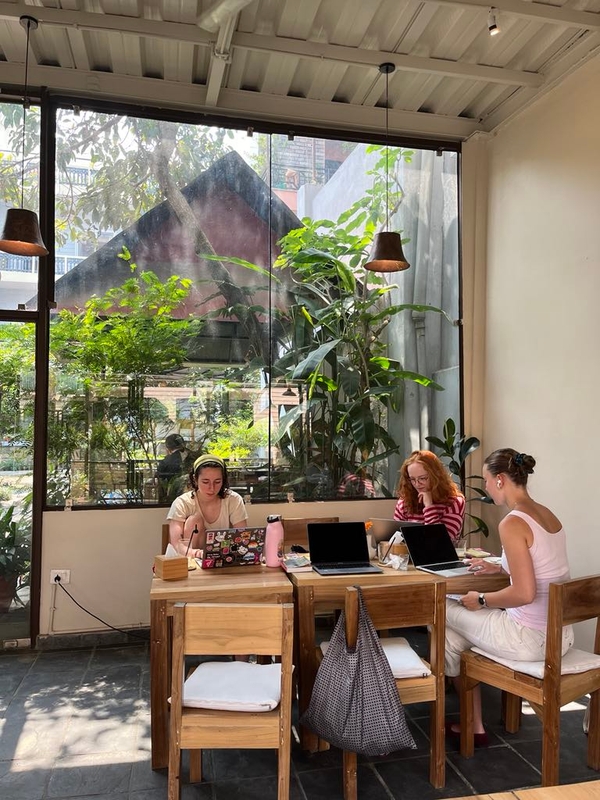
After the teaching period, it's time to write the group exam. Here, you are placed in groups with your fellow students based on the topic you wish to write about. Throughout this period, you receive excellent support from the seminar leaders, from the selection of the research question to feedback on drafts.
This period also offers some freedom, as one can arrange their day somewhat independently according to what suits the group, and choose when to work on the task and when to have free time.
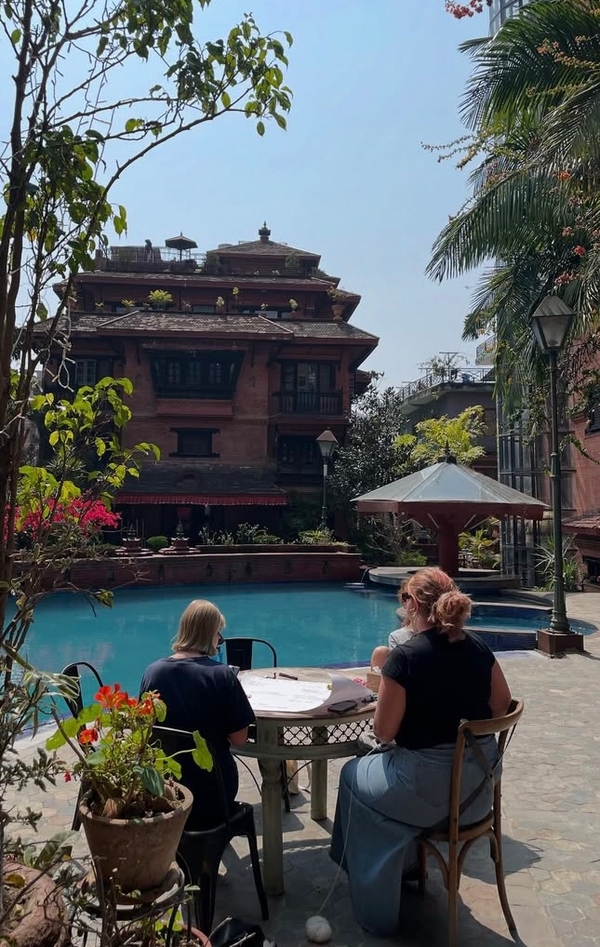
My group wrote a paper focusing on Nepal, and it gave us the opportunity to learn much more about the situation and talk with the local people, which was incredibly rewarding.
It's incredibly exciting to have the opportunity to study peace and conflict studies in a context where the theme is so relevant, with amazing lecturers and fellow students. All in all, the everyday study life in Nepal has been varied, educational, and inspiring.

